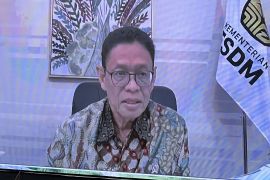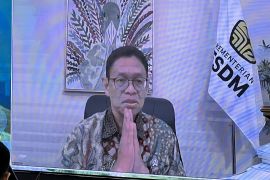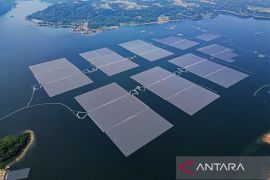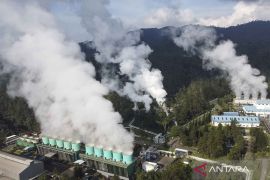'Energy transition is not merely about reducing emissions but also focuses on improving companies' efficiency,' said Andi Rizaldi, head of the ministry's Industrial Services Standardization and Policy Agency (BSKJI).
He made this statement at the Road to Indonesia International Sustainability Forum (ISF) 2024 event in Jakarta on Thursday.
The cement industry is an example of an industrial sector that has improved cost efficiency through energy transition efforts, he said.
Currently, the sector is experiencing oversupply, thus, to respond to this situation, business players in the cement industry prefer to produce green cement with lower clinker, Rizaldi expounded.
With the use of environmentally friendly cement, industry players can save on production costs and provide efficiency to consumers, he added.
The BSKJI head noted that the ISF 2024, which will be held on September 5–6, 2024, at the Jakarta Convention Center (JCC) is an opportunity to promote ideas, exchange innovations, and build solidarity between all sectors toward realizing net-zero emissions (NZE).
Under the Enhanced Nationally Determined Contributions (E-NDCs), Indonesia has raised the target for cutting carbon emissions from 29 percent, or 835 million tons of CO2, to 32 percent, or 912 million tons of CO2, by 2030.
To achieve the target, the government plans to generate 708 gigawatts of electricity, 96 percent of which will come from renewable energy power plants and the remaining 4 percent from nuclear power.
The investment needed for constructing power plants and the transmission is estimated at US$1.108 billion, with an additional investment of US$28.5 billion required until 2060.
Related news: Pertamina NRE to double clean energy output
Related news: Indonesia seeks Japanese funding for energy transition projects
Translator: Ahmad Muzdaffar, Raka Adji
Editor: Aditya Eko Sigit Wicaksono
Copyright © ANTARA 2024












